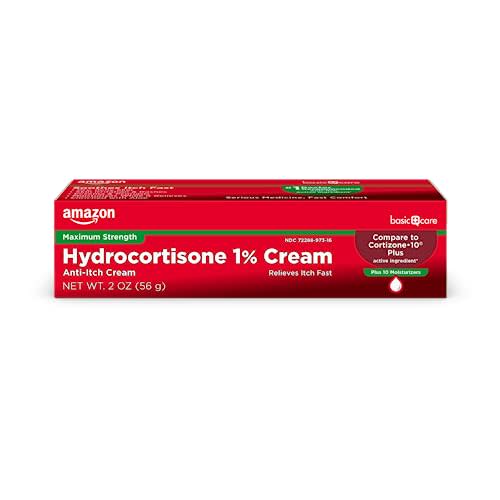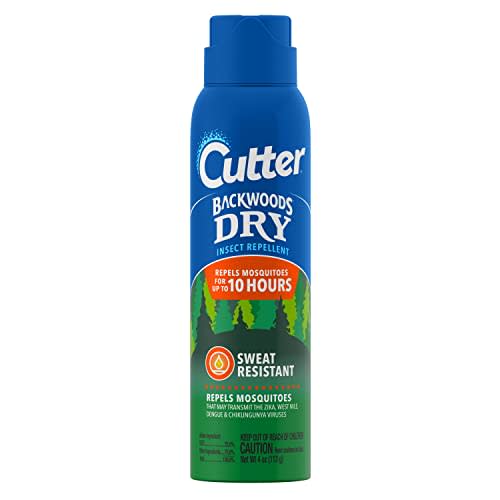Yikes—Here's When You Should Really See a Doctor About a Bug Bite, According to Dermatologists

Spending time outside is one of the best parts of summer and coming into contact with bugs is the price we pay. And sadly, being exposed to mosquitoes flying around your backyard, spiders crawling in your garden beds and wasps circulating your picnic could all potentially lead to getting bitten.
The vast majority of the time, bug bites are no big deal. (Annoying? Yes. Cause for concern? No.) But there are times when it’s important to seek medical care immediately, like having an allergic reaction, getting bit by something poisonous, or even showing signs of Lyme disease caused by an infected tick. Keep reading for tips about what to be aware of and how to keep yourself safe this summer.
Here at Parade.com, we're all about sharing products we love with our audience. When you make a purchase on an item seen on this page, we may earn a commission, however, all picks are independently chosen unless otherwise mentioned.
Signs Your Bug Bite Is Completely Normal
It bears repeating that the vast majority of the time, bug bites are nothing to freak out about. “A harmless bug bite may be red, itchy and slightly swollen, but shouldn’t be painful or last for longer than a few days,” says Dr. Michael Jacobs, MD, a board-certified dermatologist, associate professor of dermatology at Weill Cornell Medical College, and the medical technology director at Cortina. If your bug bite is red, itchy and goes away in a few days, it’s not something to worry about.
Just because your bug bite isn’t health-threatening doesn’t mean it isn’t annoying. To give yourself some relief until it heals, Dr. Dylan Alston, DO, a dermatologist at Intermountain Healthcare’s Southridge Clinic in Riverton, Utah, says applying some calamine lotion, Benadryl cream, After Bite, 1% hydrocortisone, or a paste made from baking soda can all help with the initial itch, sting or burn a bug bite can have. “Applying ice to the area can help reduce swelling, which will ease the symptoms,” he adds.
Amazon Basic Care Hydrocortisone 1% Anti-Itch Cream, 2 Ounce
Related: TikTok Is Convinced This Victoria's Secret Perfume Doubles As Insect Repellant
When To See a Doctor About a Bug Bite, According to Dermatologists
A bug bite that isn’t harmful to your health should go away in a few days. If it’s been a month and the bug bite is still there, Dr. Anthony Rossi, MD, a board-certified dermatologist at Memorial Sloan Kettering Cancer Center, says it’s time to see a doctor—because it might actually not be a bug bite at all.
Dr. Alson agrees, saying, “Skin cancer, infections and rashes have all been inappropriately blamed on bug bites. If the lesion or bite is not following the typical course a bite should follow, an appointment for further evaluation would be recommended.”
There are also symptoms that can happen after being bitten by a bug that aren’t normal and are actually signs of an allergic reaction. According to Dr. Alson and Dr. Jacobs, these symptoms include headaches, nausea, difficulty breathing, swelling and chest pain. “The best thing to do is to find and administer an EpiPen if one is available. If not, go directly to the nearest Emergency Department for proper treatment,” Dr. Alston says.
If you live or are spending time in an area known to have ticks, it’s important to be aware of the signs of Lyme disease, an infectious disease spread by ticks. “The early signs of Lyme disease can feel like a common cold with symptoms like fatigue, a fever, headaches and body aches,” Dr. Jacobs says. He adds that Lyme disease symptoms also typically include a skin rash. “The rash usually starts out small and red at the site of the bite and grows larger over time and can cover large areas of the body if not treated,” he explains.
Not all ticks are harmful; in fact, most aren’t. If you do notice a tick on yourself, Dr. Rossi says to remove it using tweezers. (First, sterilize the tip of the tweezers with rubbing alcohol.) To remove the tick using tweezers, he says to pull upward with steady, even pressure. “Avoid twisting, squeezing, or crushing the tick, as this can cause its head or mouth to break off and remain in your skin,” he says. If this happens, Dr. Rossi says to use tweezers to remove the remaining parts.
If you cannot remove the rest of the tick, see a board-certified dermatologist. Once the tick is removed, dispose of it by putting it in a sealed zip-lock bag and submerging it in rubbing alcohol. Then, clean the skin with soap and water.
Related: Avoid Getting Eaten Alive This Summer With These 25+ Plants That Repel Mosquitos
How To Protect Yourself From Bugs This Summer
To minimize your risk of Lyme disease, all three doctors recommend wearing long pants and sleeves as well as closed-toe shoes if you’re going anywhere that has ticks. Dr. Jacobs also recommends tucking your pants into your socks.
The doctors recommend using a bug repellant with DEET, which is helpful for repelling both bugs and ticks. “[DEET] is common [in]many mainstream bug sprays, and when applied, they can last for hours,” Dr. Jacobs says. He adds that it’s best to apply bug spray after any sunscreen you’re applying to your skin is dry.
Cutter Backwoods Dry Insect Repellent, Mosquito Repellent, 25% DEET, Sweat Resistent, 4 Ounce (Aerosol Spray)
When you go inside after spending time outdoors, closely inspect your skin for ticks, spiders or other bugs (or have a loved one do it).
And if you’re traveling out of the country, Dr. Jacobs says to research to see what insect-borne diseases may be present where you’re traveling. Depending on where you’re going, you may need certain vaccines or medicine to protect yourself.
For the most part, bug bites are a fact of life if you want to spend any time outside. While annoying, most of the time they aren’t anything to worry about. But if you are experiencing nausea, trouble breathing or headaches, see a doctor. And if it hasn’t gone away in weeks, that’s another good time to get it checked out. Those are the times when having a bug bite can really, well, bite!
Next up, find out the best way to get rid of gnats.
Sources
Dr. Michael Jacobs, MD, board-certified dermatologist, associate professor of dermatology at Weill Cornell Medical College, and the medical technology director at Cortina
Dr. Dylan Alston, DO, a dermatologist at Intermountain Healthcare’s Southridge Clinic in Riverton, Utah
Dr. Anthony Rossi, MD, a board-certified dermatologist at Memorial Sloan Kettering Cancer Center




